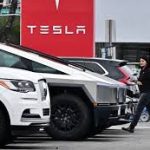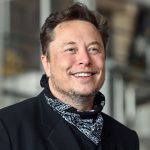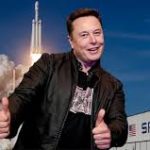Tesla Reaches $1.36 Trillion Market Cap, Setting New Records Under Elon Musk’s Leadership
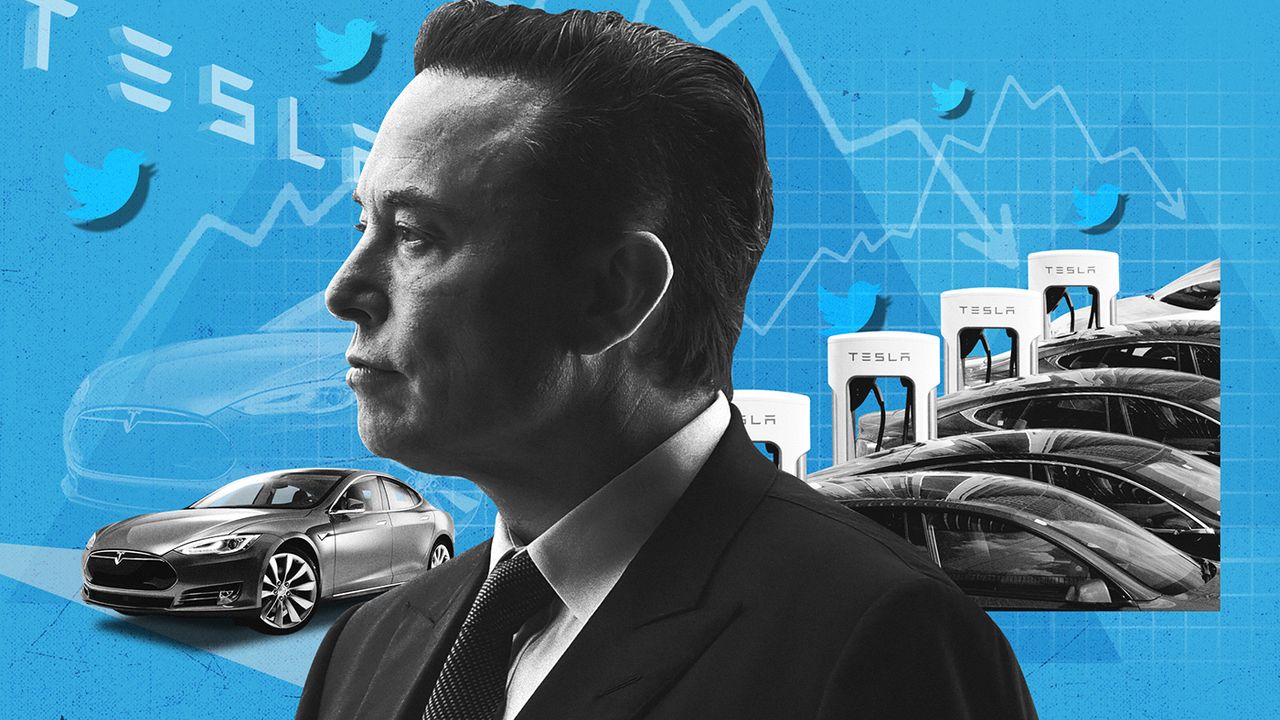
Tesla Reaches $1.36 Trillion Market Cap, Setting New Records Under Elon Musk’s Leadership
Introduction: A Monumental Achievement for Tesla
Tesla, the electric vehicle (EV) giant, has officially reached an incredible milestone, surpassing a $1.36 trillion market cap for the first time in its history. This achievement marks a significant moment in the company’s journey and underscores the immense success of Elon Musk’s leadership. Tesla, which was once viewed as a niche player in the automotive industry, has firmly positioned itself as a global leader in electric vehicles, energy storage, and sustainable technologies. With its stock price soaring and the company’s valuation breaking records, this $1.36 trillion market cap signifies not only a remarkable financial achievement but also the broader shift toward sustainable energy solutions.
Under Musk’s guidance, Tesla has become a symbol of innovation, perseverance, and disruption. The company’s impressive market cap is a direct reflection of Musk’s visionary leadership, which has transformed Tesla from a struggling startup into one of the world’s most valuable and influential companies. Tesla’s market cap is now on par with some of the largest and most established companies in the world, solidifying Musk’s role as one of the most powerful figures in global business.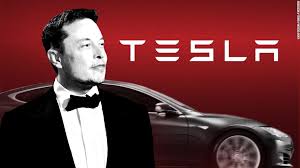
Tesla’s Growth: Driving the Electric Vehicle Revolution
Tesla’s rise to a $1.36 trillion market cap comes as no surprise to those who have closely followed the company’s journey. Since its founding in 2003, Tesla has revolutionized the automotive industry, pushing the boundaries of what electric vehicles (EVs) can achieve. Musk’s bold vision of accelerating the world’s transition to sustainable energy has been the driving force behind Tesla’s growth, which has expanded far beyond electric cars to encompass energy storage, solar power, and even autonomous driving technology.
One of Tesla’s key achievements has been its ability to scale production while maintaining a focus on innovation. The company’s impressive lineup of vehicles, including the Model S, Model 3, Model X, and Model Y, has won over both consumers and investors. Tesla has consistently outpaced many of its competitors in terms of EV production, and the demand for its vehicles continues to grow as more people embrace clean energy alternatives. The company’s ability to produce high-quality electric cars at competitive prices has been a major factor in its market success.
Moreover, Tesla’s expansion into global markets, particularly China and Europe, has been a game-changer for the company. With Gigafactories in various parts of the world, including Shanghai, Berlin, and Texas, Tesla has been able to increase its production capacity and reduce costs, making electric vehicles more accessible to a wider audience. Musk’s vision of scaling Tesla’s manufacturing footprint while maintaining cutting-edge technology has allowed the company to stay ahead of the curve in an increasingly competitive EV market.
Elon Musk’s Leadership: Vision, Risk, and Disruption
At the heart of Tesla’s success lies Elon Musk’s unique leadership style. Musk is known for his relentless drive to innovate, his willingness to take risks, and his ability to think long-term. From the beginning, Musk set out to challenge the traditional automotive industry and prove that electric vehicles could be just as desirable and functional as gasoline-powered cars. His ability to make bold moves—such as the decision to build the first fully electric car at mass-market prices, the Model 3—has paid off, as Tesla has become the dominant force in the EV sector.
Musk’s leadership has been crucial to Tesla’s ability to thrive amid adversity. In the early years, the company faced numerous challenges, including production delays, financial struggles, and skepticism from critics. Musk’s determination to succeed, combined with his willingness to personally invest in Tesla during its most difficult times, has played a pivotal role in the company’s eventual success. His famous “Tesla is going bankrupt” moment is now a distant memory, as the company is firmly entrenched as one of the largest automakers in the world.
While Musk’s public persona and sometimes controversial statements have often garnered media attention, it is his focus on achieving long-term goals that has set Tesla apart from its competitors. His dedication to sustainable energy and his ambition to make Tesla a cornerstone of the global transition to clean energy have resonated with both investors and consumers. Tesla’s success is not just about making money—it is about reshaping the way the world thinks about energy, transportation, and the future of the planet.
A New Era in the Automotive Industry: Tesla’s Disruption Continues
The $1.36 trillion market cap also marks the broader transformation of the automotive industry, as Tesla continues to lead the way in the shift toward electric vehicles. Traditional automakers have had to adapt to the growing demand for EVs, with many now making significant investments in electric car production. Companies like Ford, General Motors, and Volkswagen have launched their own electric vehicles in an attempt to compete with Tesla, but none have yet to match the scale, innovation, or market dominance that Tesla has achieved.
Tesla’s continued focus on autonomous driving technology and energy storage solutions further positions the company as a leader in the broader clean energy revolution. The company’s Full Self-Driving (FSD) technology, which has been gradually rolled out to customers, is poised to reshape the future of transportation, creating safer, more efficient roadways while reducing emissions. In addition, Tesla’s energy division, which includes products like the Powerwall, Powerpack, and solar panels, has the potential to disrupt the energy sector by enabling homeowners and businesses to generate, store, and manage their own renewable energy.
Tesla’s success has also driven significant growth in the supply chain for electric vehicles, from battery manufacturers to charging infrastructure providers. As the demand for EVs grows, so too does the need for the raw materials and infrastructure that support them. Musk’s leadership in advancing EVs has created a ripple effect across industries, encouraging further innovation and investment in sustainable technologies.
Challenges Ahead: Sustainability, Competition, and Market Volatility
While Tesla’s achievement of a $1.36 trillion market cap is a momentous occasion, it does not come without challenges. As the company grows, it will face increased competition from both traditional automakers and new electric vehicle startups. The EV market is becoming increasingly crowded, and while Tesla remains the leader, it must continue to innovate and maintain its competitive edge.
Additionally, there are challenges related to Tesla’s production capacity, particularly as demand for its vehicles continues to rise. Musk has consistently emphasized the importance of scaling up production to meet global demand, and the company’s ability to do so efficiently will be critical to its continued success. Supply chain disruptions, battery shortages, and regulatory hurdles in various countries are just a few of the challenges that Tesla must navigate to maintain its market position.
Another concern is the volatility of the stock market, especially as Tesla’s stock price has fluctuated wildly in recent years. While the company’s valuation has soared, there remains uncertainty about how sustainable this growth is over the long term. Investors and analysts alike will be watching closely to see if Tesla can continue to meet its ambitious goals and deliver on the expectations that have been set for it.
Conclusion: A Record-Breaking Milestone with a Vision for the Future
Tesla’s achievement of a $1.36 trillion market cap is not just a financial milestone—it is a testament to Elon Musk’s unwavering vision for a sustainable future and his ability to turn bold ideas into reality. Under his leadership, Tesla has become a leader in electric vehicles, clean energy, and innovation, reshaping industries and pushing the boundaries of what is possible.
As the company continues to grow and navigate the challenges of the future, Tesla’s market cap serves as a reminder of the transformative power of visionary leadership and the potential for technology to address global challenges. The $1.36 trillion valuation is a reflection of Musk’s success in driving Tesla’s mission to accelerate the world’s transition to sustainable energy, and it sets the stage for even greater accomplishments in the years to come.
Tesla’s market cap is not just a record—it is a milestone in a broader movement toward sustainability, innovation, and a cleaner, more efficient world. As the company continues to lead the charge in electric vehicles and renewable energy, its success is likely to have far-reaching effects on the global economy, the automotive industry, and the fight against climate change.
